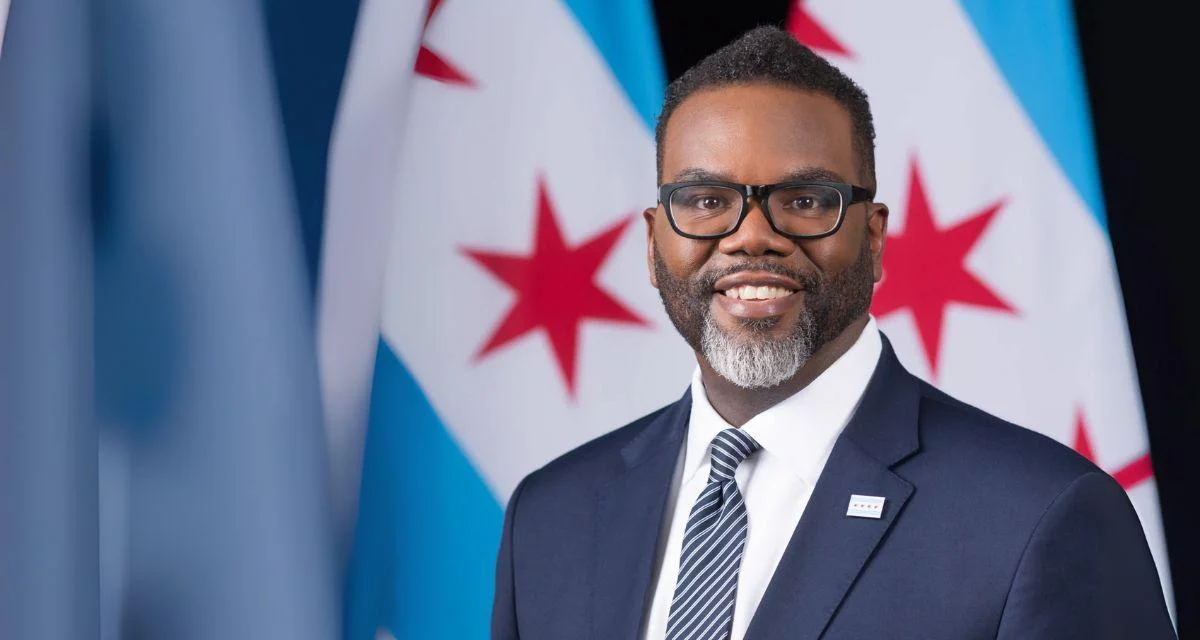Brandon Johnson, Mayor | Official Website
Brandon Johnson, Mayor | Official Website
Mayor Brandon Johnson has signed an executive order that sets nutrition standards for foods and beverages sold or served on city-owned property in Chicago. The initiative, announced in partnership with the Chicago Department of Public Health (CDPH), aims to promote healthier food options across city facilities and increase access to nutritious choices, particularly for residents in low-income neighborhoods.
“Ensuring every Chicagoan no matter their zip code has access to nutritious, affordable, and culturally appropriate food is critical to our work of building healthy, whole, and safe communities across this city,” said Mayor Brandon Johnson. “This order brings together the full force of government to make healthy eating a priority in our schools, at our parks, and all public spaces.”
For the first time, all city agencies will be required to follow mandatory purchasing guidelines regarding any food sold or served on city property. These guidelines define terms and establish best practices intended not only for municipal operations but also as recommendations for partners and non-profits involved with the City. Previously, there was no uniform standard defining “nutritious food” used by agencies throughout Chicago.
The new policy comes as federal changes threaten to reduce Supplemental Nutrition Assistance Program (SNAP) benefits for thousands of local residents. The executive order seeks to improve efficiency in food procurement while ensuring that healthier options—such as low-fat, low-sugar foods that are also culturally appropriate—are available.
“CDPH and the City of Chicago are working together to encourage and improve nutritional standards through an approach of substituting processed, high-sodium and high-sugar foods and beverages with low-fat, low-sugar, affordable, accessible, and culturally appropriate choices,” said CDPH Commissioner Olusimbo ‘Simbo’ Ige. “This executive order is a step toward changing norms around food access and reducing contributions to food-related chronic diseases.”
The announcement builds on previous community engagement efforts led by groups such as the Food Equity Council’s Institutional Food Procurement Workgroup. The new standards reflect recommendations from these stakeholders about providing more culturally responsive meals.
The order supports efforts to decrease consumption of sugar-sweetened beverages and other less nutritious foods among both employees and the public while encouraging partnerships with vendors who offer healthier products. According to officials, improving diet can help lower long-term healthcare costs by reducing risks associated with chronic illnesses like heart disease or diabetes.
Some exemptions apply under this policy: programs already governed by state or federal nutrition rules—including certain shelter operations—are not subject to these new requirements. These exceptions were developed after consultation with the Department for Family and Support Services (DFSS).
According to estimates from the Food Equity Council’s 2023 annual report, Chicago’s departments along with sister agencies spend approximately $321.86 million each year on contracts related to food services; DFSS accounts for about $13.3 million of this total.
The complete text of Mayor Johnson’s executive order will be published on the City Clerk’s website.






 Alerts Sign-up
Alerts Sign-up